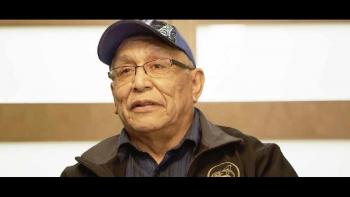Image Caption
Huu-ay-aht First Nations has declared the treatment of Huu-ay-aht children by the Province of British Columbia a public health emergency.
“Despite the provincial government saying it is a priority, we continue to see the number of Huu-ay-aht children in care increase,” said Huu-ay-aht Chief Councillor Robert J. Dennis on March 8.
“The time for endless talk is over. We demand British Columbia take action. It’s time for the province to cooperate and do its part.”
Since August 2017, Huu-ay-aht has started implementing the 30 recommendations of the Huu-ay-aht First Nations Social Services Panel Report. The recommendations intend to reduce the number of children taken into care to zero.
Huu-ay-aht has invested significant dollars—$600,000 of the $1.8 million per year required to implement the recommendations—to ensure their children grow up “safe, healthy, and connected to their home, culture, and values,” reads a press statement.
But they can’t do it alone, Huu-ay-aht insists.
“We have not received support from either the provincial or federal governments. When we started working on the recommendations from our Social Services Panel, our Nation had 34 of our 220 children in care, and 25 were in non-First Nations homes. That number is now 47, with 36 in non-First Nations homes,” said Dennis.
“I was shocked to hear it was increasing. There is a better way, and we need the province and federal government to immediately do their part to find a solution to this crisis for all First Nations communities.”
This week, lawyers for the Ministry of Children and Family Development (MCFD) sought to reduce the access of one Huu-ay-aht mother to her child; access that the BC Supreme Court had earlier ordered, reads the statement.
Huu-ay-aht First Nations had been forced to seek emergency relief from the court to ensure that the mother and baby could sustain breastfeeding and their maternal/infant bond. The province had removed the newborn without warning.
The province’s own representative for Children and Youth, Bernard Richard, said the ministry’s handling of the case “is egregious and awful”, “reeks of paternalism,” and “raises concerns about systemic racism.”
Dennis concurs with the finding. “This case is a clear example of everything that is wrong. This system is broken.”
A Huu-ay-aht home had been offered to keep the newborn in the community, with access to its own family, culture, traditions, and land. But Huu-ay-aht said the MCFD rejected that option without an explanation as to why.
Such an approach to child welfare by MCFD persists, despite solemn promises from the provincial NDP government to improve the child-welfare system.
Both the federal and provincial governments say they want to keep First Nations families together and provide better supports to keep children out of care, reads the release, but, the reality is the number of children in care continues to increase.
Huu-ay-aht is heading into meetings with both levels of government in the coming weeks and the nation will press government representatives for immediate funding, cooperation and jurisdiction to address the emergency.

